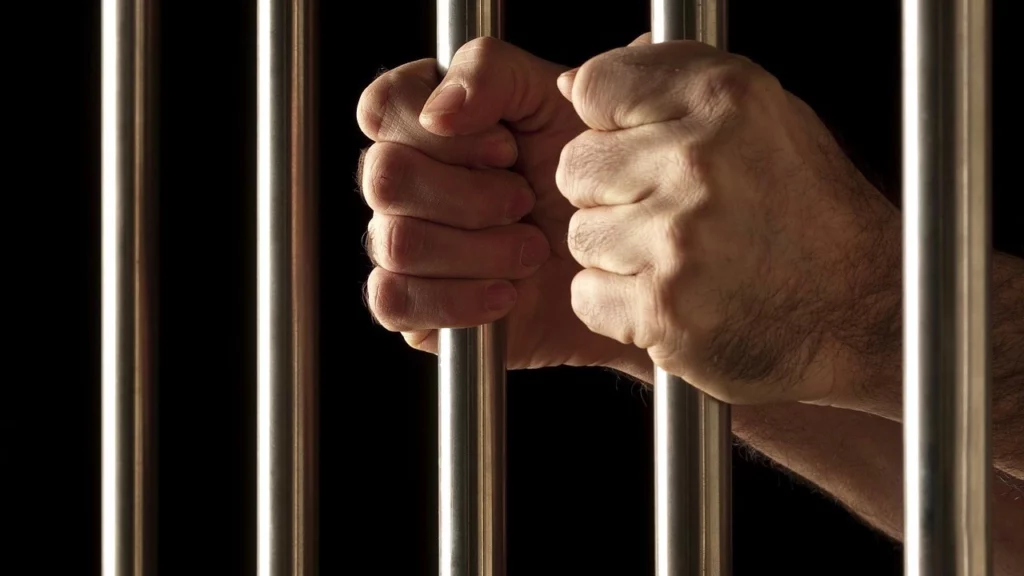Driving under the influence (DUI) is a serious legal issue in Arizona, and the state has strict laws that reflect its zero-tolerance approach to impaired driving.
These laws require mandatory jail time for DUI offenders, indicating Arizona’s commitment to public safety and the severity with which it regards such violations.
Both residents and visitors must comprehend these legal consequences, emphasizing the importance of driving responsibly.
This article aims to provide a comprehensive overview of Arizona’s DUI laws, focusing on the mandatory jail time for DUI offenses and its implications for those who are found guilty of such violations.

Arizona’s Stance on DUI and Mandatory Jail Time
General Approach to DUI in Arizona
- Zero-tolerance policy for DUI offenses
- Mandatory jail time for all DUI convictions
- Graduated penalties based on severity and repeat offenses
- Strict blood alcohol concentration (BAC) limits and enforcement
Arizona adopts a notably stringent stance towards driving under the influence (DUI), with laws designed to deter such behavior and promote road safety.
These laws are based on a zero-tolerance policy, ensuring that any level of impairment while driving leads to serious legal consequences.
The intention behind these stringent measures is to reduce the incidence of alcohol-related accidents and fatalities, sending a clear message that impaired driving is unacceptable.
The state’s laws are structured to impose mandatory jail time for all DUI convictions, regardless of whether it’s a first offense or a repeat violation.
This approach is aligned with the state’s commitment to public safety and the well-being of its residents.
Arizona’s Strict Enforcement of DUI Laws: A Focus on Punishment and Prevention
Prosecutors in Arizona are known for their rigorous pursuit of significant penalties for DUI offenses.
This is in line with the state’s tough stance on impaired driving, as reflected in its legal framework.
The mandatory jail time is not just a deterrent but also a punitive measure, emphasizing the seriousness with which Arizona views DUI offenses.
The state’s legal system is designed to ensure that those found guilty of DUI are held accountable, with penalties that underscore the gravity of endangering public safety through impaired driving.
This approach aims to not only punish but also educate offenders, hoping to prevent future incidents and enhance overall road safety.
Specific DUI Penalties Based on Offenses
Penalties for Standard DUI Offenses
- First-time offense: Mandatory 10 days in jail
- Minimum fine of approximately $1,250
- Mandatory alcohol education, treatment, or assessment
- Possible installation of an ignition interlock device
- Community service requirements
- License suspension
In Arizona, the penalties for a standard DUI offense are severe, even for first-time offenders.
A first-time DUI conviction mandates a jail sentence of 10 days, which is a clear demonstration of the state’s tough stance on impaired driving.1
Additionally, offenders are subject to a minimum fine of approximately $1,250.
Beyond the jail time and fines, convicted individuals are often required to undergo alcohol education, treatment, or assessment programs.
The court may also order the installation of an ignition interlock device on the offender’s vehicle, a tool designed to prevent further instances of DUI.
Community service is another common requirement, along with a potential suspension of the driver’s license.
Penalties for Repeat DUI Offenses
For second and subsequent DUI offenses, the penalties escalate significantly, reflecting the increased seriousness of repeat violations.
The mandatory jail time increases, and fines become more substantial.
Repeat offenders are more likely to face longer periods of license suspension and extended requirements for the ignition interlock device.
These escalated penalties are part of Arizona’s comprehensive strategy to deter DUI offenses and ensure that repeat offenders face appropriately severe consequences for their actions.
The state’s approach is aimed at both punishing and preventing DUI, emphasizing the importance of responsible driving and public safety.
Penalties for Extreme and Super Extreme DUI
Penalties for Extreme DUI
- First offense: Mandatory 30 consecutive days in jail
- Minimum fine of approximately $2,500
- Installation of an ignition interlock device for at least one year
- Mandatory alcohol education, treatment, or assessment
- Community service
- License suspension
In Arizona, penalties for Extreme DUI offenses are particularly severe.
A first-time Extreme DUI, characterized by a blood alcohol concentration (BAC) significantly higher than the standard legal limit, results in mandatory incarceration of 30 consecutive days.2
Offenders are also liable for a minimum fine of around $2,500, alongside other penalties like the mandatory installation of an ignition interlock device for at least one year, compulsory participation in alcohol-related education or treatment programs, community service, and potential suspension of their driving license.
Penalties for Super Extreme DUI
- First offense: Mandatory 45 consecutive days to 6 months in jail
- Minimum fine significantly higher than for Extreme DUI
- Installation of an ignition interlock device for a longer period
- Increased alcohol education, treatment, or assessment requirements
- Extended community service
- Longer duration of license suspension
The penalties escalate further for Super Extreme DUI offenses, which involve even higher BAC levels.
First-time offenders face a mandatory jail sentence ranging from 45 consecutive days to as long as six months.3
Fines for Super Extreme DUI are notably higher than those for Extreme DUI.
Additionally, the period for which an ignition interlock device must be installed in the offender’s vehicle is extended.
The offender also has to comply with more stringent alcohol education, treatment, or assessment requirements, alongside extended community service obligations and a longer duration of license suspension.
These rigorous penalties reflect Arizona’s commitment to deterring highly dangerous driving behaviors and maintaining road safety.
Penalties for Aggravated DUI
- Committing a third DUI offense within 7 years
- DUI offense while driving on a suspended, revoked, or canceled license
- DUI offense with a passenger under 15 years old
- Mandatory installation of an ignition interlock device
- Hefty fines and court fees
- Extended jail or prison time for subsequent offenses
- License revocation
- Mandatory alcohol education, treatment, or assessment
- Community service
Aggravated DUI in Arizona is a more serious charge than standard, Extreme, or Super Extreme DUIs, and it encompasses a few specific circumstances.
One of the most common scenarios for an Aggravated DUI charge is committing a third DUI offense within a seven-year period.
Also, operating a vehicle under the influence while having a suspended, revoked, or canceled license, or committing a DUI with a minor under 15 years old in the vehicle, can lead to an Aggravated DUI charge.
The penalties for Aggravated DUI are notably more severe and include mandatory installation of an ignition interlock device on the offender’s vehicle.
Offenders face hefty fines and court fees, which significantly exceed those for less severe DUI offenses.
For repeat offenses, the legal consequences escalate dramatically, often leading to extended periods of jail or even prison time.
Additionally, Aggravated DUI convictions commonly result in the revocation of the driver’s license.
Beyond these direct penalties, individuals convicted of Aggravated DUI are usually required to participate in alcohol education, treatment, or assessment programs. Community service is also a typical component of the sentencing.
These penalties aim to both punish and rehabilitate offenders, as well as deter others from committing similar offenses.
The strict nature of these penalties reflects Arizona’s rigorous approach to handling severe DUI cases, emphasizing public safety and the grave consequences of impaired driving.
Alternative Sentencing Options in Arizona
Conditions for Alternative Sentencing
- Non-violent first-time offenders
- Offenders demonstrating genuine remorse and willingness to reform
- Cases where mandatory jail time poses undue hardship
- Court’s assessment of the offender’s risk to public safety
Arizona law provides for alternative sentencing in DUI cases under certain conditions, primarily aimed at non-violent, first-time offenders.
This approach is considered when the court determines that standard punitive measures may not be the most effective solution, especially for individuals who show genuine remorse and a strong willingness to reform.
Alternative sentencing is also considered in situations where imposing mandatory jail time might result in undue hardship for the offender, without necessarily serving the broader goals of justice and public safety.
The types of alternative sentencing available in Arizona include:
– Enrollment in alcohol or substance abuse treatment programs: These programs are designed to address the underlying issues related to the DUI offense, with the goal of rehabilitation and preventing future offenses.
– Community service: Offenders may be required to complete a certain number of hours of community service, contributing positively to society as part of their sentence.
– House arrest with electronic monitoring: In some cases, offenders may be allowed to serve part or all of their sentence under house arrest, monitored electronically to ensure compliance.
– Probation: This may be granted instead of, or in addition to, other forms of punishment, allowing the offender to remain in the community under supervision.
– Attending victim impact panels: Offenders might be required to attend sessions where victims of DUI incidents share their experiences, aiming to educate the offenders about the real-life consequences of impaired driving.
These alternative sentencing options are considered on a case-by-case basis and are often accompanied by other conditions, such as regular drug and alcohol testing, to ensure that the offender remains compliant with the terms of their sentence.
The aim is to balance the need for punishment with opportunities for rehabilitation, thereby reducing the likelihood of repeat offenses and enhancing overall public safety.
Eligibility for Alternative Sentencing
Eligibility for alternative sentencing in Arizona DUI cases is determined by several factors:
– Criminal history: Offenders with no prior convictions or a minimal criminal record are more likely to be eligible.
– Nature of the DUI charge: Eligibility varies based on whether the charge is for a standard, extreme, super extreme, or aggravated DUI.
– Severity of the offense: The level of impairment and whether the incident involved property damage, injury, or death affects eligibility.
– Compliance with law enforcement: Cooperative behavior during the arrest and legal proceedings can influence eligibility.
– Assessment of rehabilitation potential: Judges often consider the offender’s attitude, remorse, and willingness to undergo treatment.
– Specific circumstances of the case: Unique factors such as personal, professional, or family responsibilities can impact eligibility decisions.
The offender’s criminal history plays a significant role; those with no previous convictions or a minimal criminal record are more likely to be considered for alternative sentencing options.
The nature of the DUI charge is also crucial.
Eligibility criteria differ depending on whether the offense is categorized as standard, extreme, super extreme, or aggravated DUI, with more serious charges typically facing stricter eligibility requirements.
The severity of the offense, including the level of impairment and whether the incident resulted in property damage, injury, or death, is another key consideration.
Judges also look at how the offender behaved during the arrest and throughout the legal proceedings.
Cooperative and respectful behavior can positively influence eligibility.
An assessment of the offender’s potential for rehabilitation is a critical factor.
This includes evaluating the offender’s attitude towards the offense, their expressed remorse, and their willingness to participate in treatment or educational programs.
Finally, the specific circumstances of the case, such as personal, professional, or family responsibilities, can also play a role in determining eligibility for alternative sentencing.
The overarching goal is to balance the need for justice and public safety with the potential benefits of rehabilitation and reformation.
Navigating DUI Charges in Arizona
The importance of seeking legal representation in DUI cases in Arizona cannot be overstated.
Navigating the complexities of DUI laws and the justice system requires the expertise of a skilled DUI lawyer who is familiar with the nuances of Arizona’s legal framework.
Key reasons to consult with an experienced attorney include:
– In-depth understanding of DUI laws: A specialized DUI lawyer possesses a comprehensive knowledge of state DUI laws and regulations.
– Case evaluation and strategy: An attorney can evaluate the specifics of your case, identify potential defenses, and develop a strategic approach to your defense.
– Plea negotiations: Experienced lawyers often have the skills to negotiate plea deals that could result in reduced charges or alternative sentencing.
– Representation in court: A lawyer can effectively represent and advocate for you in court proceedings, ensuring your rights are protected.
– Guidance through legal procedures: They provide valuable guidance through the complexities of legal procedures, from arraignment to trial.
– Potential to minimize penalties: Skilled attorneys may be able to minimize the penalties you face, whether through reduced charges, alternative sentencing, or dismissal of charges in certain cases.
Consulting with a knowledgeable DUI attorney is crucial in ensuring that you have informed guidance and robust representation throughout the legal process.
Their expertise not only helps in navigating the legal system but also increases the possibility of achieving a more favorable outcome, whether that involves reduced penalties, alternative sentencing options, or in some cases, dismissal of charges.
It’s a vital step in protecting your rights and interests in a DUI case.
Understanding DUI Laws in Arizona
Arizona’s DUI laws are among the strictest in the nation, emphasizing a zero-tolerance policy and mandating jail time for those found guilty.
Understanding the complexities of these laws and the severe repercussions of a DUI conviction is vital.
For anyone facing DUI charges in Arizona, seeking professional legal counsel is necessary.
Experienced DUI attorneys offer essential guidance and advocacy, enhancing the prospects of a favorable legal outcome through strategic case handling and skilled negotiation.
Remember, safety is paramount.
It’s important to make responsible choices, like avoiding drinking and driving.
Each decision can significantly impact not only your life but also the lives of others.
By staying informed and making safe choices, we contribute to a safer community for everyone.
ARE YOU DEALING WITH LEGAL CHALLENGES RELATED TO A DUI IN ARIZONA?
At Cornerstone DUI, we are your go-to source for various online services in Arizona, including state-approved Online DUI Classes and thorough Arizona Alcohol Screenings and DUI Screening Assessments.
Tailored to your needs, our online programs offer unmatched convenience.
We are committed to offering cost-effective solutions for those needing these services, and with our price guarantee, we promise to offer rates that are 10% lower than any competitors, making our services accessible to everyone who requires them!
Take the first step today – contact us for a free, confidential assessment.
SOURCES
[1] Driving Under the Influence (DUI) | ADOT
[3] Arizona DUI Laws | Arizona Governor’s Office of Highway Safety








